The sky is well on its way to brightening as a group of volunteers gather inside the animal clinic at the Mountainaire Avian Rescue Society on Vancouver Island near Courtenay. Their hands cup thermoses as they chat, voices muffled through masks, while waiting for manager Gylaine Andersen to hand out the day’s marching orders.
On a nearby whiteboard is a list of patients that will require attention throughout the day. There are gulls and owls, mink and robins, even a gaze of raccoon kits. (Despite its name, the clinic treats some mammals.) Also on the list are two planned releases, including a bald eagle destined for the North Island.
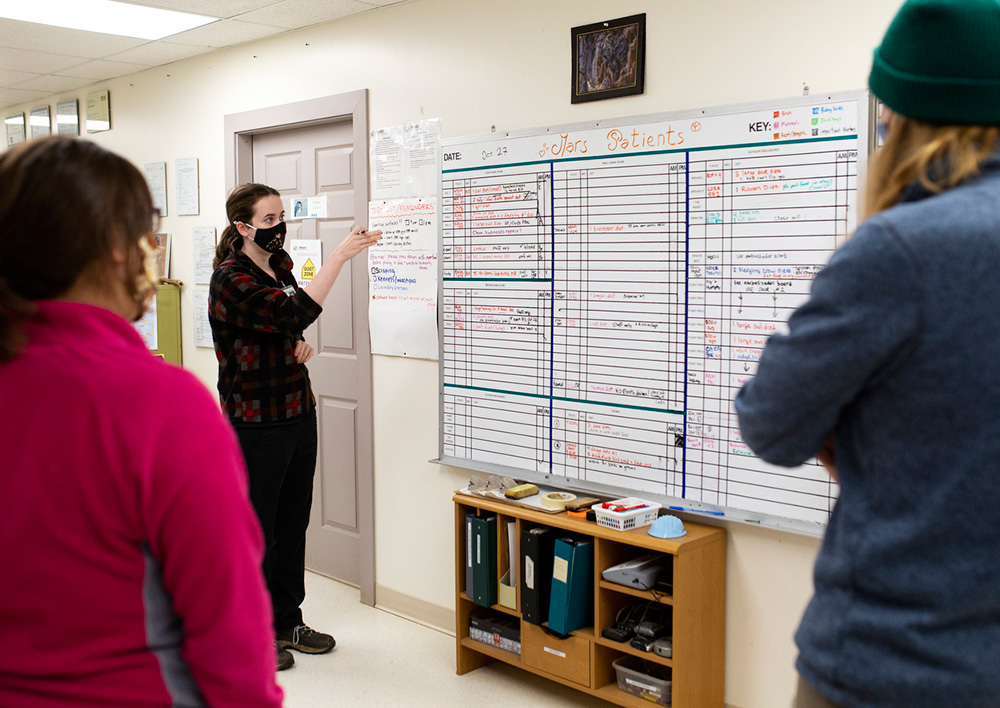
The tasks will keep volunteers and staff busy, but it’s a light workload. The clinic, which usually reaches capacity during the busy baby season from April to October, is perhaps half full today.
Last year, the non-profit cared for more patients than ever before, admitting 1,136 animals. There are a few reasons for the increase, but it’s mostly because of more human-wildlife interactions, says Andersen, manager of wildlife rehabilitation.
“We’re just encroaching on habitats more and more,” she says, “so I think we’re going to see an increasing trend towards more patients.”
The pandemic has choked off the revenue streams that usually keep the animal rehabilitation clinic open. The visitor centre, which facilitates tours and education sessions, has been closed since November.
When the pandemic hit, the non-profit struggled to get the PPE that it had always used to protect the animals and the humans who interact with them.
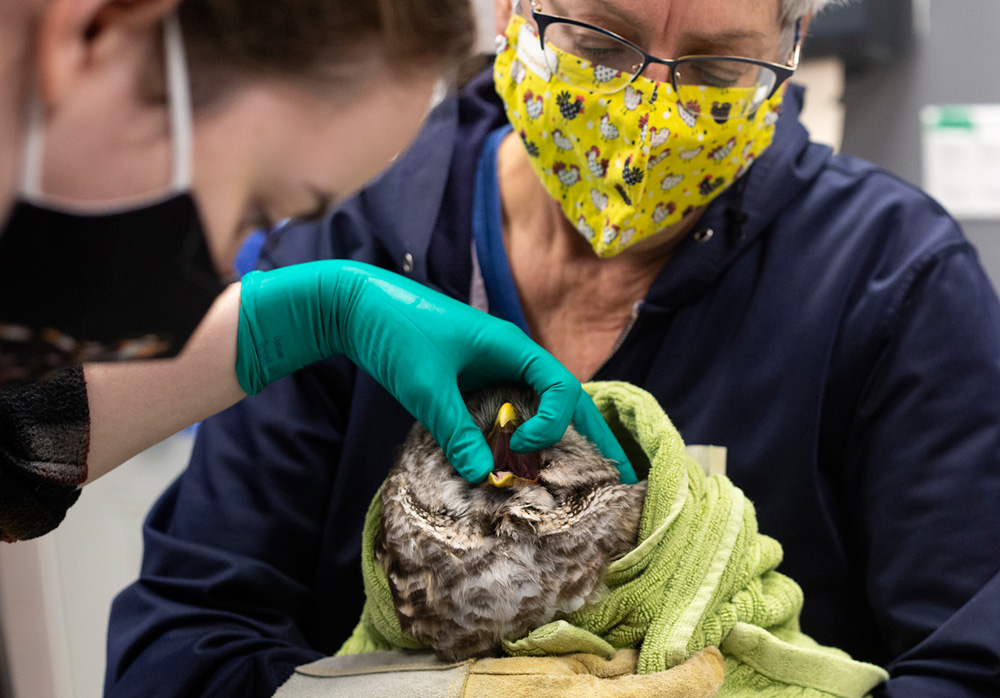
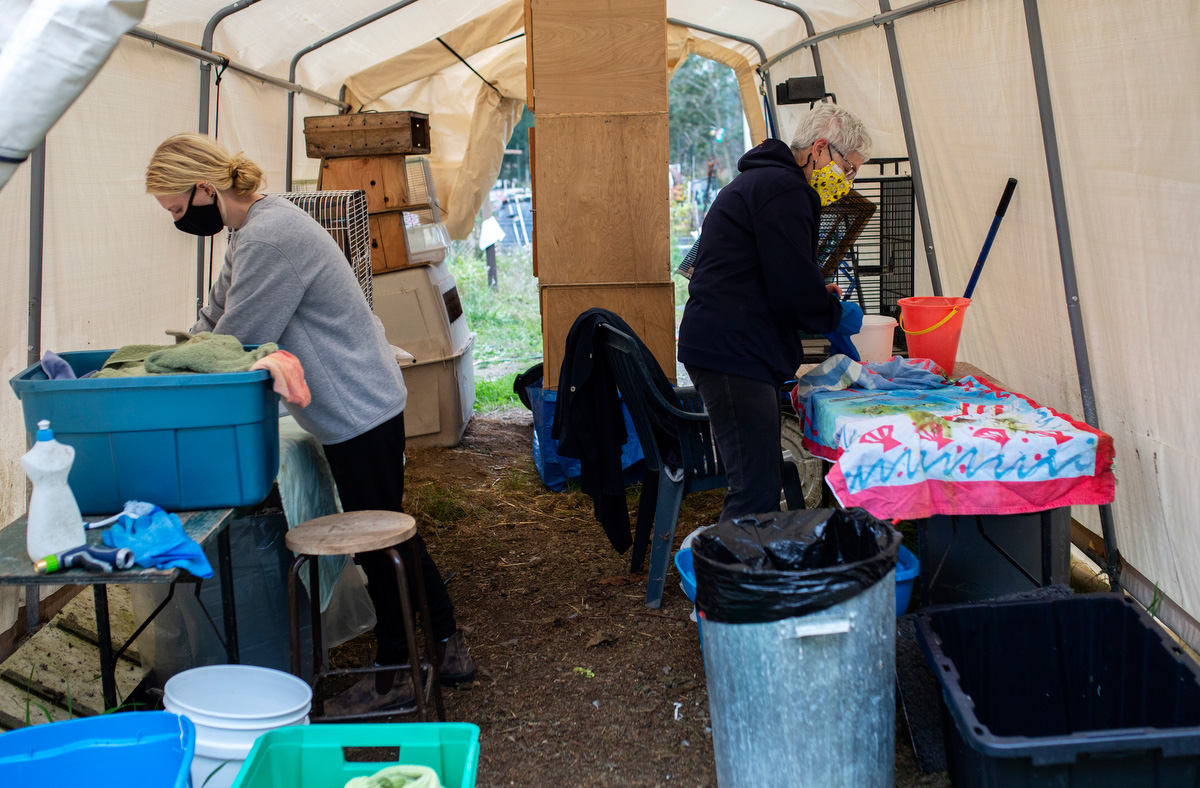
It also worried that people may not be as keen to donate due to their own financial struggles.
Luckily, says Andersen, the community stepped up and MARS continues to operate.
Even during a pandemic, wildlife still get injured. Vancouver Island residents need someone to call when a bird goes bump in the night. And though the doors remain closed to human visitors, the clinic continues to care for injured wild animals.
Longtime volunteer Jo Stiles sets off immediately after the morning meeting. She grabs a pair of welding gloves, some towels and a medium-sized dog kennel, then heads towards the new flight pen.
Inside the cavernous wooden structure are two bald eagles. But just one is getting released today. Stiles and assistant manager Kierstan Shyian separate the eagles and then close the partition, trapping themselves with the healthy bird.
They hold up a towel each as they herd the eagle into a corner and gently scoop it up, depositing it in the dog kennel. Birds like the dark, so it’s draped with more blankets for its journey north.
Later that afternoon a volunteer will set the kennel down in a parking lot, unhook the latch, swing the door open and wait a few moments before the eagle hops out, gazes at the trees and flies away.
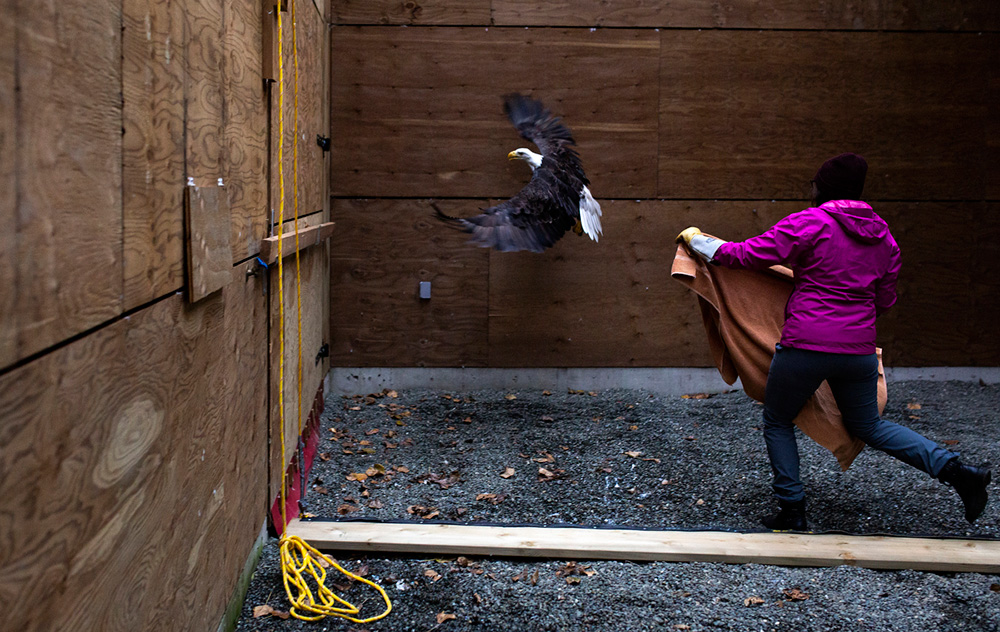
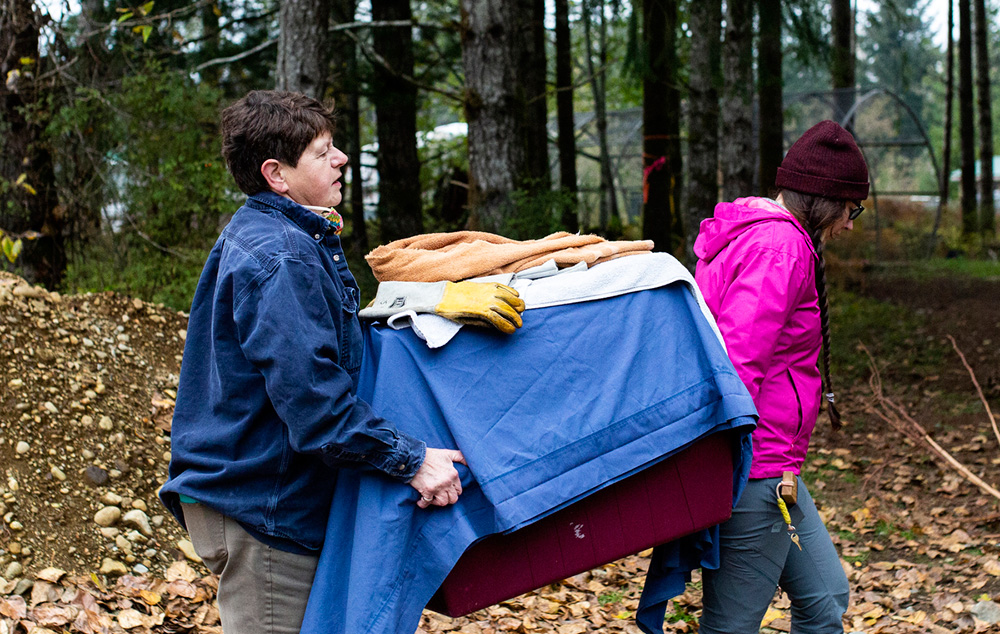
Transporting animals to and from the clinic is only one way volunteers are involved in its operations. Volunteers are critical to the clinic’s success and are “involved in pretty much every aspect of what we do here,” says Andersen.
Volunteers work at the visitor centre and fundraise. They attend work parties to build and maintain structures and to plant native species.
In the clinic, they prepare meals for patients, clean their enclosures while changing their towels and blankets and even help staff with some of the medical tasks.
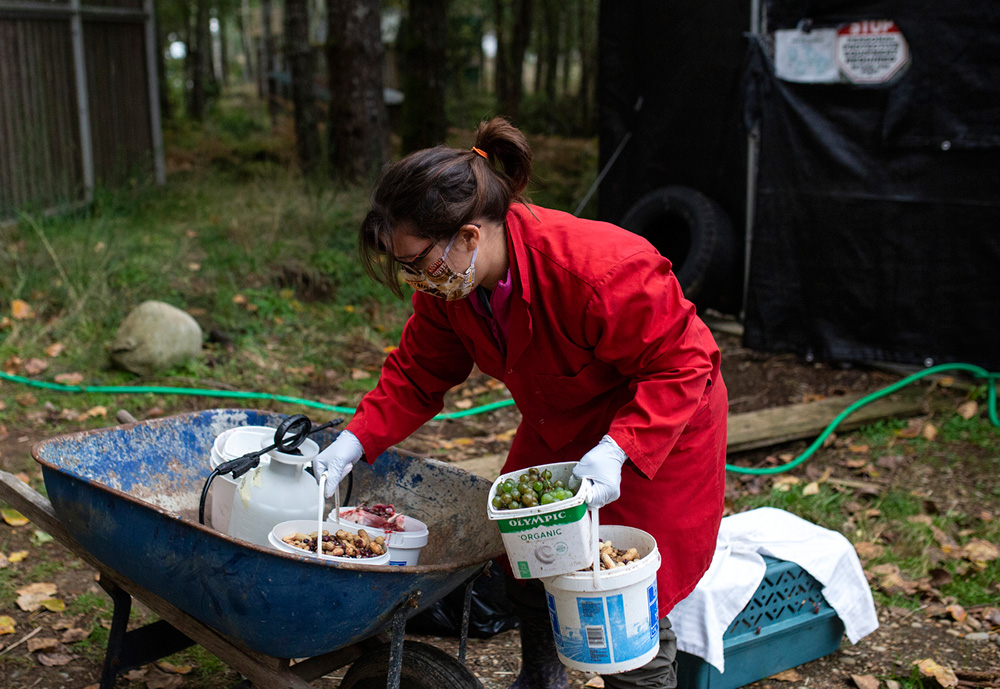
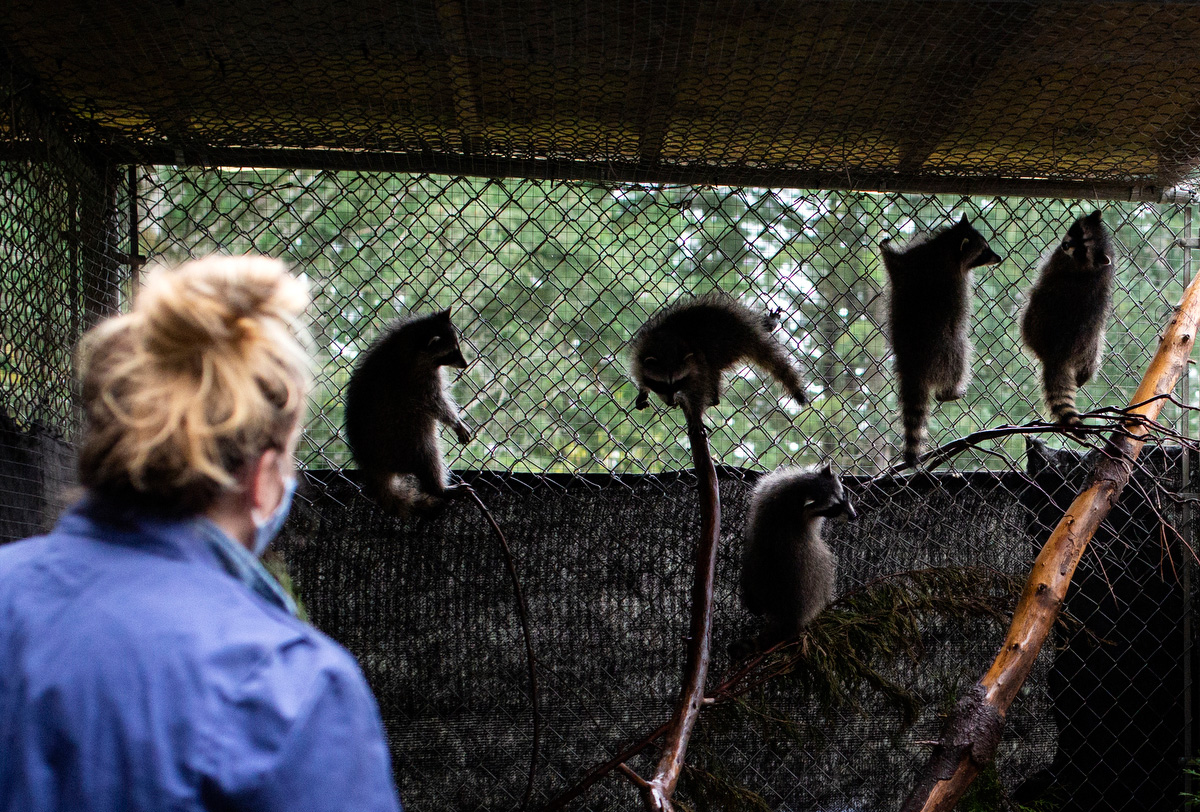
While staff aren’t overly concerned about the transfer of COVID-19 between humans and the animal patients, the clinic has beefed up its regular safety protocols.
“We also have mink, so we’re just being a little bit more careful with those species where it’s known to cause problems,” says Andersen.
The bustle around the clinic slows as the afternoon sets in. With most of the day’s chores completed, volunteers start peeling out of the parking lot. There will be more work tomorrow. ![]()
Read more: Health, Environment


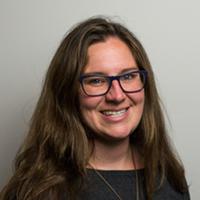
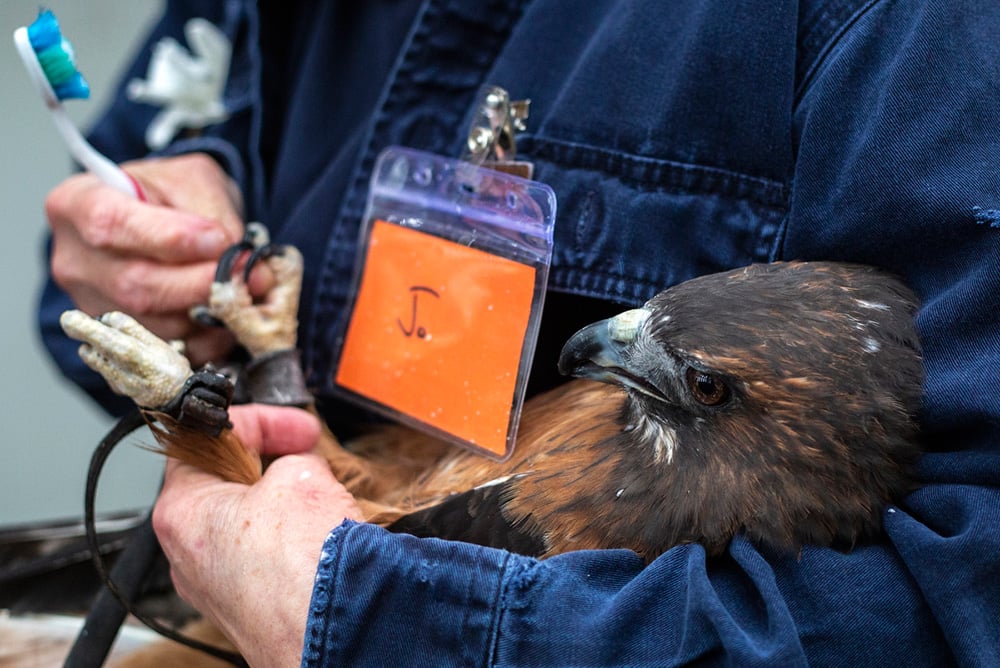












Tyee Commenting Guidelines
Comments that violate guidelines risk being deleted, and violations may result in a temporary or permanent user ban. Maintain the spirit of good conversation to stay in the discussion.
*Please note The Tyee is not a forum for spreading misinformation about COVID-19, denying its existence or minimizing its risk to public health.
Do:
Do not: